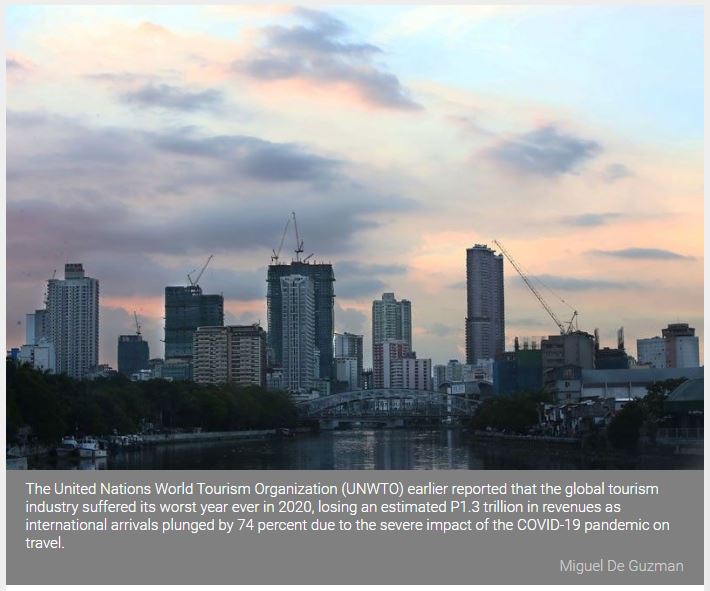Philippines: Fiscal stimulus important for tourism recovery – IMF
MANILA, Philippines — Multilateral lender International Monetary Fund (IMF) has stressed the importance of fiscal stimulus to revive the tourism sector in countries like the Philippines amid the pandemic.
In a paper titled “Tourism in the post-pandemic world,” the IMF said fiscal support could help offset some of the losses in the economy caused by the collapse of the global tourism industry.
The IMF said member countries of the Association of Southeast Asian Nations (ASEAN)–5 including the Philippines have some fiscal space available to temporarily shift employment and spending into other segments of the economy and support the tourism sector.
“The member countries of the ASEAN-5 have differing amounts of fiscal space (some much more limited than others), but could still consider this sort of stimulus because of the extraordinary circumstances of the pandemic, ” it said.
The United Nations World Tourism Organization (UNWTO) earlier reported that the global tourism industry suffered its worst year ever in 2020, losing an estimated P1.3 trillion in revenues as international arrivals plunged by 74 percent due to the severe impact of the COVID-19 pandemic on travel.
Latest data from the Department of Tourism (DOT) showed foreign arrivals plunged by 82 percent to 1.48 million last year, the lowest since 1999 due to pandemic-induced lockdowns to slow the spread of the virus.
As a result, the country’s tourism receipts plummeted by 83 percent to P82.24 billion last year from P482.15 billion in 2019.
While most tourism-dependent countries rely on global developments to exit the crisis, the IMF said policy and institutional choices would also play a critical role in the economic recovery.
“Given the high degree of uncertainty surrounding the post-pandemic world and the expected deep and long-lasting economic scarring, tourism-dependent countries will need to proactively identify and calibrate a well-sequenced and comprehensive set of policy solutions in coordination with the private sector to establish and comply with health and safety protocols, while communicating those with clarity and consistency to potential travelers to rebuild their trust and confidence,” it said.
The IMF said economic strains in micro, small and medium enterprises (MSMEs) as much as larger-service industry firms like airlines could spill over to the financial sector, further hampering the recovery.
It pointed out some countries have proactively provided fiscal stimulus and financial support for tourism and related sector including workers, business, and national airlines.
In the Philippines, both Philippine Airlines of tobacco and airline magnate Lucio Tan and Gokongwei-owned Cebu Pacific have booked huge losses and have started to lay-off thousands of workers.
“Fiscal and macro-financial policies can play a critical role in mitigating the deep and long-lasting economic scarring in many tourism-dependent economies,” the IMF said.
It also said carefully designed fiscal stimulus targeted to help the ailing tourism sector would be needed in many such economies, while being mindful of available fiscal policy space and debt sustainability concerns.
The multilateral lender said the recovery in international travel and tourism would be protracted and subject to a high degree of uncertainty.
Source: https://www.philstar.com/business/2021/02/22/2079412/fiscal-stimulus-important-tourism-recovery-imf


 English
English




